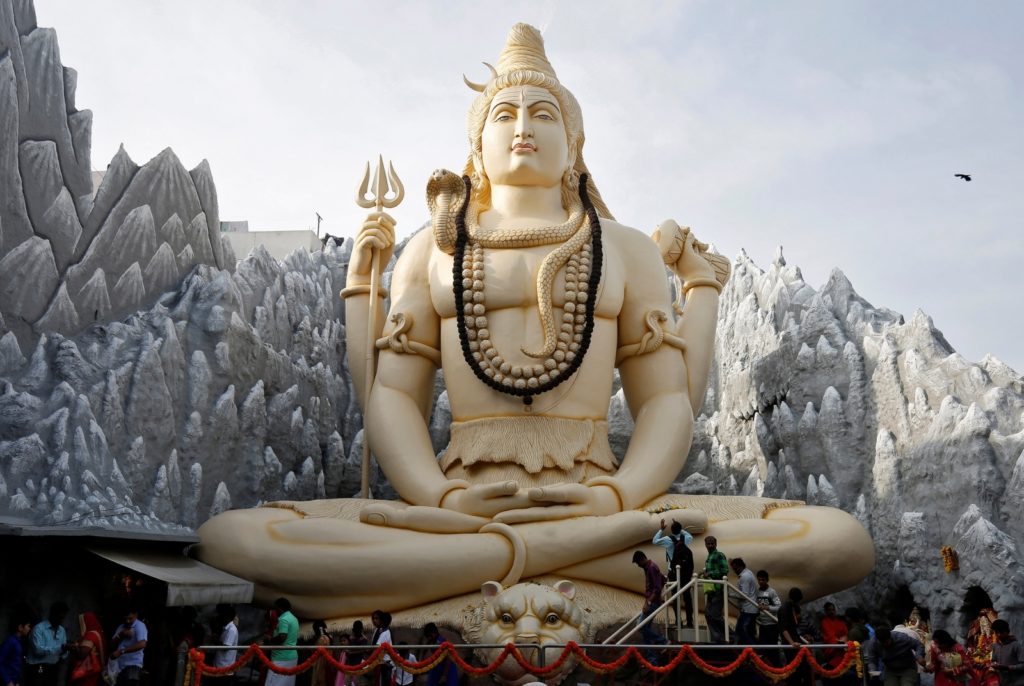
Chinnappa, A. N. (2018) Devotees offer prayers and perform rituals in front of a statue of Lord Shiva at a temple in Bengaluru during the Maha Shivratri festival, Available at: https://d.ibtimes.co.uk/en/full/1668134/maha-shivaratri.jpg
Post contributed by Lorna, Student Experience Ambassador
Maha Shivaratri is one of the most significant festivals in India, which is known as ‘The
Great Night of Shiva’; Shiva being one of the most powerful Hindu deities. Mahashivratri
is one of the most spiritually significant festivals, as the northern hemisphere is placed in
a state that causes a natural upsurge of energy for humans.
This nightlong festival is highly relevant to many in a spiritual sense. Those who are in
family situations acknowledge this festival to be Shiva’s wedding anniversary with
Parvati, whereas those with ambition observe Maha Shivaratri to be the day that Shiva
conquered his enemies. In the yogic tradition, Shiva is considered the Adi Guru,
meaning the first Guru from whom Yoga originated. It was on this day that Shiva
stopped all movement, therefore Maha Shivaratri became the night of stillness. This day
presents many possibilities to the spiritual seeker, as the energy manifests itself in
millions of ways such as the realisation of the oneness of existence.
The oneness of existence is revealed through this festival because of the vast emptiness
of its nature. Shivaratri is the darkest night of the month which means it becomes an
opportunity to dissolve one’s limitedness, and to experience the source of creation. The
festival is often observed with fasting and meditation, although this may differ in different
Hindu sects.
References:
BBC (2008) ‘Hinduism: Mahashivratri’, Available at: BBC – Religions – Hinduism:
Mahashivratri
Mahashivratri (2023) ‘Why Mahashivratri is celebrated and the significance of
Mahashivratri’, Available at: Why Mahashivratri (sadhguru.org)
